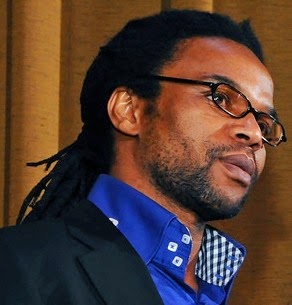By José Cossa, Ph.D.
Mozambican democratization
process is in danger!
Recently, there have been reports
of attacks on the so-called RENAMO (Mozambican National Resistance) stronghold and
consequent retaliation on government forces, mainly representing interests of
the leading party FRELIMO (Front of Liberation of Mozambique). This, many
believe, might lead to the eruption of a civil war and the fracturing of the
peace accord signed in Rome, on October 4 of 1992, between RENAMO and FRELIMO.
The accord ended almost two decades of war that devastated the country’s
infrastructure, economy, and caused the loss of countless civilian lives.
Since the peace accord, Mozambicans
have enjoyed a partial peace in that the country was able to enjoy a complete
miraculous cease-fire immediately after the signing of the peace accord; yet, tensions
between RENAMO and FRELIMO have continued to exist in regards to the
implementation of the democratization process. While this continued tension has
manifested in the lingering lack of full confidence on the results of each
election administered after the peace accord, it has not been a reason for
defiance of the peace accord by RENAMO or any other political party. This has
served the country (rather, the economic and political elite) very well in that
it portrayed a climate of stability on the surface, which was good for
investors to consider Mozambique a destiny for their money. However, this was
only partial in that the vast majority of Mozambicans continued to live light
years below the poverty line and under destitute conditions amidst a country
boasting a wide array of unexplored natural resources and uninhabited land. On
the other hand, Mozambicans have been living under severe torment perpetrated
by gangs and mafia-like organizations that take advantage by the inability of
the government to implement the rule of law, or even the absence of the rule of
law altogether.
Like many Mozambicans, I am
adamant that the formula for democratization is wrong from the start in many
post-conflict countries. The fundamental error lies on the fact that the
military movements make the assumption that they are a political party, thus assume
that changing their status from a military movement to a political party and
structuring themselves in such a way is sufficient to make them political
parties. The evidence against such a formula is overwhelming! In Sub-Saharan Africa
alone, we have seen the unfolding of failure of military governments in places
such as Zimbabwe, South Africa, and Angola. Civilian government seems to be the
logical solution for post-conflict situations.
Given the continued tension and
unfortunate circumstances to which the average Mozambican citizen was subjected
to, while pledging allegiance to FRELIMO the party of its fantasies or
nightmares and an aversion to RENAMO the party of its nightmares or fantasies,
the current occurrences are only a reflection of the irrelevance of military
governments in post-conflict situations.
Needless to admit, many have
proposed civilian government as the solution for post-conflict countries.
However, many of the movements-turned-parties are not offered an alternative
that they consider feasible. Reform alone is not feasible; they need to feel
validated as key forces behind their countries democratization process. Thus, I
propose the following two phases as an alternative to the transition towards a
true democratization of countries haunted by militarism:
·
Phase 1: Any given nationally unified liberation
movement that leads its country to independence is the country's rightful
leader as it already enjoys majority support amongst the people. However, in
order for a genuine democratization process to be maintained this phase should
expire and give way to phase 2;
·
Phase 2: The given liberation movement should
allow itself to break into civilian political parties with no allegiance to the
movement. Nonetheless, individual members of civilian parties may maintain
their affiliation to the movement as a valuable historical patrimony. Should
the movement choose to maintain its existence, it should be stripped of its
military power and restrained from becoming a political force or from
influencing political decisions.
These two phases might constitute
a foundation for open conversations about the democratization process in
post-conflict situations. Perhaps the people and the international community of
citizens (not governments, as such) will force FRELIMO and RENAMO to end the
impasse, acknowledge their irrelevance as political parties, and to allow the
people to lead the country with a vision that is not backed by militarism and
internal military tension between two former rivals.
Mozambican citizens in the country
and the Diaspora can make it happen. However, caution must be exercised to
avoid the eruption of factions, disorderly behavior, and failed attempts at transformation
leading to chaos. The world has seen enough of aborted revolutions, disorderly
democratization movements, and wars hurting more civilians than the actual
military elites that instigate them. Mozambicans must divorce themselves from
the sense of romanticism over FRELIMO’s role in liberating the country, divorce
themselves from the sense of one-sided blame over RENAMO’s waged war against
FRELIMO, and marry the sense of hope in a civilian government judged by its clarity
of vision and mission to serve the country as well as its unwavering sense of commitment
to the people.

No comments:
Post a Comment